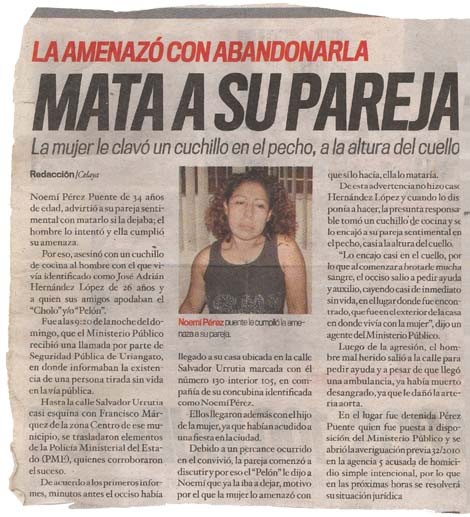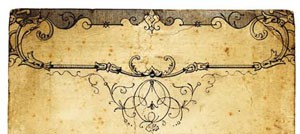Page 2 of 3
BROTHERLY LOVE
In late 2001, Jose was released from ARTEC. On one of his first visits to the Midvale club of the Boys & Girls Clubs of South Valley, where Hunter worked, he brought a sheaf of poems. But he was accompanied by some other men who were clearly armed and protecting him.
Hunter told Jose he had to change his ways before he could help, or get help, at the club. Jose obliged and soon became a regular at the club where “he had the same face, only more humor; more Jose, less Flaco,” Miguel says.
Jose went to Denver and was about to conclude a $25,000 drug deal when, Hunter says, Jose heard a “voice” telling him to abandon drugs and help other kids get out of gangs. Jose believed God had given him an “assignment.”
Penniless, he returned to Midvale and approached Hunter outside the club one evening. “He didn’t want to come in,” Hunter recalls. “He was embarrassed he looked like a homeless person.” Jose told him about his assignment, then opened his empty wallet and showed him, in the driver’s license pouch, that first poem he had written. “This is the most important thing that ever happened to me,” he said. “I wanted to thank you.”

Jose “was hungry for this mission of his,” Hunter says, and quickly became “a poster child” for the Boys & Girls Clubs. He performed “I Stand Alone” for U.S. Rep. Jim Matheson, D-Utah, for a club fundraiser in 2003. He and Hunter visited many schools, including Eisenhower Junior High, where he spoke on gang prevention to a skills-for-life class run by Cristine Spendlove. Jose seemed mature, Spendlove says, and brought a message of hope: “For all the mistakes he had made, he told the children there was hope for them, they didn’t have to live like he did.”
If Jose had success persuading Hispanic kids from going into gangs, he failed with his younger brother. At a junior high school, Miguel met several Crazy Ass Mexican gang members. When he hung with the CAM guys, Miguel says, “I liked how they showed brotherly love.” He told Jose that he wanted to get jumped in to CAM. Jose took him outside. “Let’s see if you’re ready to bang,” he said. Jose was a good fighter, Miguel recalls, and “beat the shit out of me.” It wasn’t enough to dissuade him. By taking his brother’s beating, “I let him know I was down for my gang.”
BROKEN HEART
From the spring of 2002 on, Hunter and an intensely committed Jose formed an odd Batman-and-Robin duo of the at-risk counseling world. Hunter took Jose to a women’s shelter where Hunter had experienced difficulty communicating with the women and found that Jose, to his surprise, connected with them to such an extent that they requested that he return for subsequent visits.
Jose would constantly push Hunter to visit more schools and reach out to dignitaries and the well connected, with Jose reading his poetry at a national Hispanic chamber of commerce dinner and a host of other such black-tie events.
But the heart of Jose’s work was talking with young undocumented teens who saw gang life as a replacement for their impoverished family situations and offering them, through poetry and his own experiences, a different path to walk down.

|
My Prayer |

|
It seemed a natural combination, then, when in early November 2003, the Boys & Girls Clubs offered Jose part-time work through a Department of Workforce Services program. He did two weeks’ work, Cetrola says, but then had trouble producing a Social Security number. Despite Cetrola fighting for Jose, he was never paid for the two weeks. “He felt devastated,” she says. He nevertheless filled in papers to be a Boys & Girls Clubs volunteer, only to be denied. Boys & Girls Clubs Director Bob Dunn says he doesn’t remember why, but points to Jose’s criminal record. When Hunter told Jose he’d been rejected as a volunteer, “he just melted and went into convulsive tears.” The work he did at the club with at-risk youth meant everything to Jose, Hunter says. “It was his antidote to drugs, to being in gangs.” His desperation, Cetrola says, led to suicidal impulses that she worked with him on during counseling.
That rejection, Miguel says, led Jose to start “messing up again. He tried to do something positive and they told him no. He was mad, sad. He was Flaco again.”
Jose hoped his short video he made in 2004 could raise money to make a documentary about his life. “He wanted to help people understand what the challenges and situation was being from Mexico but not necessarily being accepted here,” says former SpyHop manager Matt Bradley, who worked with Jose on the film.
By the summer of 2005, Jose had secured funding for his film project and was living with an older woman and her children. On July 23, 2005, the woman called the police, alleging Jose had tried to kill her with a knife. He was arrested, but a month later, the two assault charges were dismissed due to “witness problems,” according to court documents.
When Hunter went to pick Jose up from jail, he found out immigration officials were deporting him to Tijuana. He saw Jose shortly before he was flown out and gave him the few dollars he had in his pocket. Jose came out in leg irons, the smell of an outhouse wafting behind him from the room where the deportees were being warehoused. Hunter saw “a defeated kid. I wanted to give him a hug,” but he wasn’t allowed to touch him.
A year and a half later, Jose miraculously returned to the States and was back “in the Lake,” Miguel says. One night, there was a knock at the door. When Miguel opened the door and saw his brother, “It wasn’t difficult to see he’d done more shit,” Miguel says.